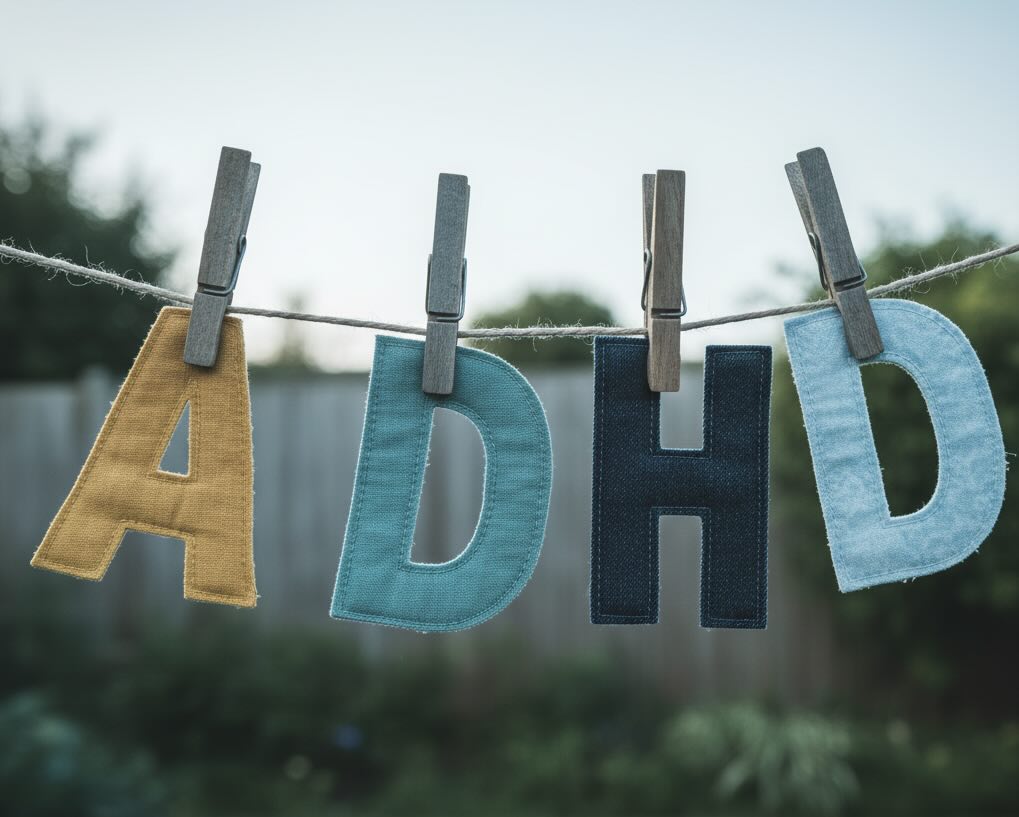What is Postnatal (Postpartum) Depression?
Postnatal depression is a type of depressive disorder that occurs during pregnancy or after childbirth. Clinically, it’s usually understood as:
- A major depressive episode that starts during pregnancy or in the first postnatal year after birth because risk remains elevated for many months, and
- Causes significant distress or interferes with your ability to function or care for yourself, your baby, or other responsibilities.
“Baby blues” vs postnatal depression
- Baby blues
- Widespread (around half of new mothers)
- Usually starts 3–5 days after birth
- Mood swings, tearfulness, irritability, feeling overwhelmed
- Typically resolves on its own within about 1–2 weeks.
- Postnatal depression
- More severe and longer-lasting (weeks to months)
- Involves significant low mood, loss of interest, guilt, hopelessness and functional impairment
- Needs active support and often professional treatment
Postnatal depression and other conditions
Postnatal depression often occurs alongside other mental health conditions, such as:
- Generalised anxiety or panic
- Perinatal OCD (intrusive, distressing thoughts and compulsive checking)
- PTSD related to birth trauma
- Bipolar disorder (with depressive or mixed episodes around childbirth)
- Substance use difficulties (e.g. using alcohol or drugs to cope)
There is also a separate, much rarer emergency condition called postpartum psychosis – involving severe confusion, hallucinations, delusions or manic symptoms – which needs urgent specialist care and is not the same as postnatal depression.
Because of this overlap, it’s important to look at postnatal depression as part of your whole mental health picture, not in isolation.
Postnatal depression in the workplace
Postnatal depression can have a big impact on work and study, especially around returning from parental leave:
- Fatigue, low energy and poor concentration can make even simple tasks feel overwhelming
- Guilt and self-criticism may increase worries about performance or judgement from colleagues
- Anxiety or panic may make meetings, commuting or leaving the baby particularly stressful
- Some people find that being back at work helps recovery; others need adjustments or more time.
With understanding, flexible arrangements and clear plans, many parents with postnatal depression continue or return to work successfully. In many countries, there are specific rights and protections related to postnatal depression and maternity/parental leave – local employment advice services can help you understand these.
Postnatal Depression Symptoms
Core symptoms
Postnatal depression includes many of the same symptoms as major depression at other times of life, but in a perinatal context:
- Emotional
- Persistent low mood, sadness or frequent crying
- Feeling empty, numb, or overwhelmed
- Loss of interest or pleasure in things you used to enjoy
- Irritability, anger or feeling “on edge”
- Thoughts and beliefs
- Harsh self-criticism (“I’m a terrible parent”, “My family would be better off without me”)
- Intense guilt or shame, especially about parenting
- Feeling hopeless about the future
- Physical and cognitive
- Very low energy, feeling physically “heavy” or slowed down
- Problems with sleep (insomnia, early waking or sleeping too much), even when the baby sleeps
- Changes in appetite or weight
- Poor concentration, memory problems or feeling in a fog
- Behaviour and relationships
- Withdrawing from friends, whānau/family or social activities
- Difficulty bonding with the baby, or feeling detached
- Going through the motions of care but feeling no joy
- Using alcohol, drugs or compulsive behaviours (e.g. scrolling, shopping) to cope
- Intrusive or frightening thoughts
- Distressing, unwanted thoughts of something bad happening to the baby, sometimes including images of harm
- These are very common in perinatal mental health conditions and do not mean you want to act on them – but they can be extremely upsetting.
How it may feel day-to-day
People with postnatal depression often describe:
- Going through the day on autopilot, doing tasks but feeling disconnected.
- Feeling like everyone else is coping better than you.
- Wanting to hide how you’re feeling because “I should be happy”.
- Feeling resentful, trapped or guilty, sometimes all at once.
- Worrying that if you tell someone, you’ll be judged or the baby will be taken away.
You’re not alone in feeling this way, and reaching out for help is a sign of courage, not failure.
When to seek help
Get urgent/emergency help immediately (ambulance, emergency department or crisis services) if you:
- Have strong thoughts of suicide, self-harm, or harming your baby
- Hear voices, see things that aren’t there, or hold fixed strange beliefs (e.g. that your baby is evil or that others are plotting against you)
- Feel very confused, extremely agitated, or only sleeping an hour or two a night without feeling tired
- Have sudden, dramatic changes in mood or behaviour (e.g. feeling “high”, invincible or acting very out of character)
These can be signs of severe depression or postpartum psychosis and are medical emergencies. Help is available, and urgent treatment can be life-saving. Talk with your midwife, health visitor, Plunket nurse or other health professional promptly if:
- Low mood, anxiety or loss of interest has lasted more than a couple of weeks
- You are struggling to care for yourself or your baby
- You’re avoiding contact with people or activities you used to enjoy
- You notice increasing use of alcohol, sedatives or other substances to cope.
How Do You Assess Postnatal Depression?
Because depression symptoms can overlap with normal tiredness, baby blues, childbirth recovery and physical conditions, assessment needs to consider context, timing and severity. The Edinburgh Postnatal Depression Scale (EPDS) is a 10-item assessment designed for use in pregnancy and postpartum situations. A formal diagnosis should involve a few steps:
- Start with a broad multi-disorder mental health screen: Multi-disorder tools (like Loffty) look at postnatal depression alongside:
- Generalised anxiety, panic disorder, OCD and PTSD
- Bipolar disorder, psychosis and behavioural conditions
- Sleep problems, burnout and substance use.
This multi-condition approach helps clarify whether your experience fits best with postnatal depression alone, a different condition, or a combination, which then guides treatment. International guidelines increasingly recommend routine screening during pregnancy and at several points after birth, but only where services can offer timely follow-up and treatment.
- Clinical conversation: A psychologist, psychiatrist or perinatal mental health clinician will typically explore:
- Your mood and anxiety symptoms, including timing in pregnancy or postpartum
- Sleep, appetite, energy and concentration
- Bonding and feelings towards the baby
- Past history of depression, anxiety, bipolar disorder or trauma
- Birth experiences (including complications or trauma)
- Support from partner, family and community
- Any thoughts of self-harm or harm to others.
They will also ask about the father's/partner's mental health, because co-parents can develop depression or anxiety during this time too.
- Physical health checks: Your qualified professional may also check for or rule out other conditions that can mimic or worsen depression, such as:
- Thyroid problems
- Anaemia
- Vitamin deficiencies
- Infections or complications from pregnancy/birth
- Medication side effects.
This isn’t to “prove it’s all in your head” – it’s to make sure nothing important is missed and to guide safe treatment choices.
How Do You Treat Postnatal Depression?
Treatment is individual, but evidence supports a combination of lifestyle and social support, psychological therapy, and (for some people) medication.
Lifestyle and practical support
- Rest where possible: True, sustained sleep can be hard with a newborn, but small changes (sharing night feeds, napping when you can, accepting help) can add up.
- Nutrition and movement: Gentle activity and regular meals can support mood and energy – even short walks or stretches once your body has recovered enough.
- Social connection: Parent groups, “coffee groups”, community singing groups, online communities and peer support can reduce isolation and depressive symptoms.
- Reducing unhelpful pressure: Limiting comparison with others, adjusting expectations (“good enough” parenting) and sharing care tasks can reduce guilt and overload.
- Partner and family involvement: Educating partners about postnatal depression and specific ways to support you can make a big difference.
Psychological therapies
A large body of research shows that psychological and psychosocial interventions are effective for perinatal depression.
Commonly recommended options include:
- Cognitive Behavioural Therapy (CBT)
- Identifying and gently challenging harsh self-beliefs (“I’m a bad mother/parent”).
- Building skills to manage worry, rumination and intrusive thoughts.
- Scheduling small, meaningful activities that build pleasure and mastery.
- Interpersonal Psychotherapy (IPT)
- Focuses on role transitions (becoming a parent), grief, conflict and social support.
- Helps you navigate relationship changes with partner, family and friends.
- Mother–infant or parent–infant therapy
- Supports both the parents’ mental health and the developing relationship with the baby.
- Group and digital programmes
- CBT-based groups, online guided self-help and blended (online and in-person) interventions are increasingly available and can be as effective as individual therapy for many people.
Medication
Medication can be an important part of treatment, especially for moderate to severe postnatal depression, or when therapy alone isn’t enough. Decisions always need to balance risks and benefits for the parent, baby and breastfeeding.
- Antidepressants (usually SSRIs or SNRIs)
- Often considered first-line medications during the perinatal period, with some agents (e.g. certain SSRIs) having more pregnancy/breastfeeding safety data than others.
- Taken daily; effects build over several weeks.
- Newer perinatal-specific treatments
- In some countries, neuroactive steroid medicines (such as brexanolone and zuranolone) have been approved specifically for postpartum depression, offering more rapid symptom relief in selected cases. Availability, funding and suitability vary by country and individual circumstances.
- Benzodiazepines and other agents
- Sometimes used short-term for severe anxiety or insomnia, but carries dependence and sedation risks, so guidelines recommend cautious, time-limited use.
For severe depression or postpartum psychosis, more intensive treatment may include:
- Care from a specialist perinatal mental health team
- Inpatient admission, ideally with mother-and-baby units where available
- Electroconvulsive therapy (ECT), which can be life-saving and is compatible with breastfeeding in many settings.
All medication decisions should be made with a qualified prescriber who understands your medical history, pregnancy/birth course and feeding choices.
Postnatal Depression Research
Recent research highlights:
- High prevalence worldwide: a 291-study meta-analysis across 56 countries estimated an average postpartum depression prevalence of 17.7%, with higher rates in low- and middle-income settings. It doesn’t only affect birth mothers. Studies suggest that around 1 in 10 fathers or partners may experience depression or anxiety in the perinatal period (pregnancy and the first year postpartum)
- Risk factors: including past depression or anxiety, limited social support, relationship stress or violence, poverty, obstetric complications, unplanned pregnancy and infant health problems.
- Impact on families: prolonged untreated postnatal depression is linked to difficulties in mother–infant interaction and can affect children’s later emotional and cognitive development.
- Screening and guidelines: major organisations (NICE, ACOG, national perinatal guidelines, JAMA and others) now recommend routine screening for perinatal depression and anxiety with validated tools, alongside clear follow-up pathways.
- Treatment evidence: systematic reviews find that CBT-based and interpersonal therapies, delivered individually, in groups or digitally, are effective in reducing perinatal depressive symptoms, and that stepped-care models (starting with lower-intensity support and increasing as needed) are promising.
With the right support, most people recover fully, though it can take time.
Books and Resources About Postnatal
- This Isn’t What I Expected: Overcoming Postpartum Depression – Karen Kleiman & Valerie Raskin: A compassionate, practical guide for understanding PPD, challenging myths and exploring self-help and professional treatment options.
- Beyond the Blues: Understanding and Treating Prenatal and Postpartum Depression & Anxiety – Shoshana Bennett & Pec Indman (2024 edition): Evidence-based information about risk factors, diagnosis, treatment and prevention of perinatal mood and anxiety disorders for both parents and professionals.
- Down Came the Rain: My Journey Through Postpartum Depression – Brooke Shields: A well-known memoir describing the author’s severe postpartum depression and recovery, which has helped bring public attention to this condition.
- Good Moms Have Scary Thoughts: A Healing Guide to the Secret Fears of New Mothers – Karen Kleiman & Molly McIntyre: Uses cartoons, exercises and gentle guidance to normalise intrusive thoughts and difficult feelings in new parenthood and encourage help-seeking without shame.
- The Pregnancy & Postpartum Anxiety Workbook – Pamela Wiegartz & Kevin Gyoerkoe: CBT-based skills for managing anxiety, worry and panic in pregnancy and postpartum – often very relevant because anxiety commonly overlaps with postnatal depression.




